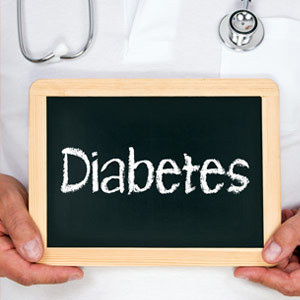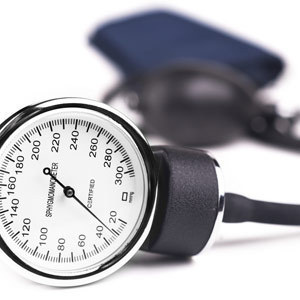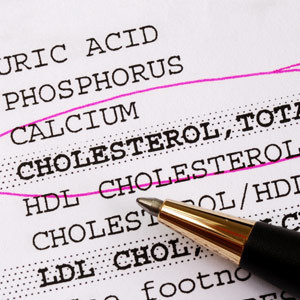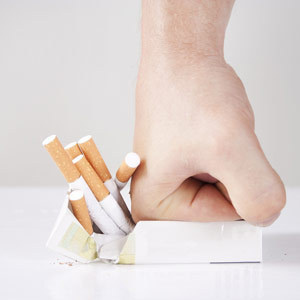
SPECIAL FROM Grandparents.com
We all know that stress, anxiety, and depression (and many antidepressant medications) can interfere with your sex life. But there are other health issues that also can make it difficult to get your mojo working. Decreased libido, erectile dysfunction, and difficulty reaching orgasm can be caused by reduction of blood flow, which limits arousal and ability to reach orgasm. If your sex life isn’t what you want it to be, get a work-up from your physician to see if the responsible parties could be…
-
1 Adult Onset (Type II) Diabetes What it is: Muscles become resistant to the insulin hormone. Insulin allows blood sugar (glucose) to move from the blood into the muscles, which uses it as fuel. Often caused by obesity, lack of exercise, and a high-fat diet. How it can affect your sex life: Diabetes can reduce blood flow to the penis or vagina, which can limit arousal and ability to reach orgasm. What to do: Maintain normal glucose levels through a healthy, low-sugar diet, weight reduction, and regular exercise to prevent further progression of the disease. See your doctor about medications that can help manage your diabetes. “Catch it early and the sexual responsiveness will return; let it progress too far, and some of the dysfunction is irreversible,” said Barbara Bartlik, M.D., a New York City psychiatrist specializing in sexual health. Women can try the Eros clitoral therapy device, a small suction cup (placed over the clitoris before sex), and a small, battery-operated vacuum pump, available by prescription. The pump’s gentle suction action increases blood flow to the clitoris, which in turn, increases pressure on the clitoral nerve, lubrication, and sensation. (This device also useful for hypertension and high cholesterol-related decrease in arousal.) Men can use vacuum constriction device (VCD), or erectile dysfunction medications like Viagra.
What it is: Muscles become resistant to the insulin hormone. Insulin allows blood sugar (glucose) to move from the blood into the muscles, which uses it as fuel. Often caused by obesity, lack of exercise, and a high-fat diet. How it can affect your sex life: Diabetes can reduce blood flow to the penis or vagina, which can limit arousal and ability to reach orgasm. What to do: Maintain normal glucose levels through a healthy, low-sugar diet, weight reduction, and regular exercise to prevent further progression of the disease. See your doctor about medications that can help manage your diabetes. “Catch it early and the sexual responsiveness will return; let it progress too far, and some of the dysfunction is irreversible,” said Barbara Bartlik, M.D., a New York City psychiatrist specializing in sexual health. Women can try the Eros clitoral therapy device, a small suction cup (placed over the clitoris before sex), and a small, battery-operated vacuum pump, available by prescription. The pump’s gentle suction action increases blood flow to the clitoris, which in turn, increases pressure on the clitoral nerve, lubrication, and sensation. (This device also useful for hypertension and high cholesterol-related decrease in arousal.) Men can use vacuum constriction device (VCD), or erectile dysfunction medications like Viagra. -
2 Hypertension What it is: Elevated blood pressure and a tightening of the arteries. How it can affect your sex life: As with diabetes, hypertension can reduce blood flow to the penis or vagina, which can limit arousal and ability to reach orgasm. Also, some medications for hypertension can decrease sexual arousal. What to do: Work on keeping blood pressure low with a healthy, low-sodium diet and exercise regularly. If you need to be on medication, ask your doctor to work with you on finding one with a minimum of sexual side effects for you. “Everyone reacts differently to drugs, so what works for you may be a bit of trial and error until you find the right one,” says Dr. Bartlik. She recommended taking a well-absorbed form of magnesium, such as magnesium glycinate or magnesium citrate. “Magnesium reduces blood pressure so the dose of antihypertensive can be reduced, plus magnesium is necessary for sexual arousal. Many are deficient in this mineral to start with, which is why their blood pressure is high,” she adds. As always, consult your physician before taking any new medication or supplements.
What it is: Elevated blood pressure and a tightening of the arteries. How it can affect your sex life: As with diabetes, hypertension can reduce blood flow to the penis or vagina, which can limit arousal and ability to reach orgasm. Also, some medications for hypertension can decrease sexual arousal. What to do: Work on keeping blood pressure low with a healthy, low-sodium diet and exercise regularly. If you need to be on medication, ask your doctor to work with you on finding one with a minimum of sexual side effects for you. “Everyone reacts differently to drugs, so what works for you may be a bit of trial and error until you find the right one,” says Dr. Bartlik. She recommended taking a well-absorbed form of magnesium, such as magnesium glycinate or magnesium citrate. “Magnesium reduces blood pressure so the dose of antihypertensive can be reduced, plus magnesium is necessary for sexual arousal. Many are deficient in this mineral to start with, which is why their blood pressure is high,” she adds. As always, consult your physician before taking any new medication or supplements. -
3 High Cholesterol What it is: A fat-like substance that contributes to plaque formation in the arteries, which impairs blood flow. How it can affect your sex life: Statin medications sometimes can inhibit sexual functioning, because they reduce testosterone. What to do: It’s worthwhile to talk to your doctor about trying to reduce your cholesterol without the medications. If you can't get off your medications, ask your doctor about naturally reducing your cholesterol enough so that you can at least reduce the amount of medication you have to take. Eat a Mediterranean diet – emphasize fruits, vegetables, fish, garlic, and whole grains. Limit unhealthy fats. Take fish oil, flax seed oil, and psillium. Drink green tea. Exercise regularly.
What it is: A fat-like substance that contributes to plaque formation in the arteries, which impairs blood flow. How it can affect your sex life: Statin medications sometimes can inhibit sexual functioning, because they reduce testosterone. What to do: It’s worthwhile to talk to your doctor about trying to reduce your cholesterol without the medications. If you can't get off your medications, ask your doctor about naturally reducing your cholesterol enough so that you can at least reduce the amount of medication you have to take. Eat a Mediterranean diet – emphasize fruits, vegetables, fish, garlic, and whole grains. Limit unhealthy fats. Take fish oil, flax seed oil, and psillium. Drink green tea. Exercise regularly. -
4 Smoking What it is: Smoking cigarettes is not a disease (although it can lead to lung cancer and heart disease,) but it is worth noting that smoking is one of the biggest cause of sexual dysfunction in men and women. How it can affect your sex life: As with diabetes and hypertension, smoking can reduce blood flow to the penis or vagina, which can limit arousal and ability to reach orgasm. What to do: It’s time to stop smoking! We know it’s not easy, but it can be done. The American Cancer Society recommends: Make a firm decision to quit and commit to it. Pick a “Quit Day.” Tell friends and family about it, and engage their support. Meet with you physician to devise a plan: Cold turkey? Attend a stop-smoking class? Use nicotine replacement patches. Throw out all your cigarettes and paraphernalia. “Unlink” habitual activities that always had a smoking component. If you routinely had a cigarette with your morning coffee, find a replacement. Stay active and drink a lot of water and juices.
What it is: Smoking cigarettes is not a disease (although it can lead to lung cancer and heart disease,) but it is worth noting that smoking is one of the biggest cause of sexual dysfunction in men and women. How it can affect your sex life: As with diabetes and hypertension, smoking can reduce blood flow to the penis or vagina, which can limit arousal and ability to reach orgasm. What to do: It’s time to stop smoking! We know it’s not easy, but it can be done. The American Cancer Society recommends: Make a firm decision to quit and commit to it. Pick a “Quit Day.” Tell friends and family about it, and engage their support. Meet with you physician to devise a plan: Cold turkey? Attend a stop-smoking class? Use nicotine replacement patches. Throw out all your cigarettes and paraphernalia. “Unlink” habitual activities that always had a smoking component. If you routinely had a cigarette with your morning coffee, find a replacement. Stay active and drink a lot of water and juices.
No comments:
Post a Comment